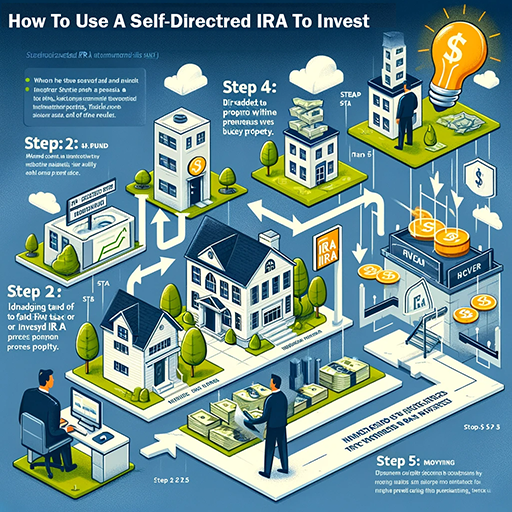The Practical Guide to Using Self-Directed IRAs for Investing
Understanding Self-Directed IRAs
A self-directed Individual Retirement Account (IRA) opens the door to a broader range of investment opportunities compared to traditional IRAs. These unique retirement accounts allow individuals to diversify their portfolios by investing in various assets, including real estate, precious metals, and more. Unlike traditional IRAs, which are typically limited to stocks and bonds, self-directed IRAs offer investors the freedom to explore alternative investment options. However, it's essential to understand the rules set by the IRS, especially concerning prohibited transactions and disqualified persons, to avoid penalties and maintain the tax-advantaged status of the IRA.
The Appeal of Real Estate Investing
Real estate investment within a self-directed IRA holds several appealing benefits for investors. Firstly, it provides diversification, which is key to any robust investment strategy. Real estate can offer stability against market volatility, which is often observed in stock and bond markets. Secondly, the potential for growth and income from real estate is significant. Properties can appreciate in value over time, and rental properties can generate ongoing income. This combination of growth and income is particularly attractive for adding to retirement funds and creating a more secure financial future.
Tax Advantages of Real Estate in an IRA
Investing in real estate through a self-directed IRA offers substantial tax advantages. In a traditional IRA, the growth of investments is tax-deferred. This means that you don't pay taxes on the capital gains or rental income until you start making withdrawals in retirement. In contrast, a Roth IRA allows for tax-free growth. Contributions to a Roth IRA are made with after-tax dollars, but qualified withdrawals, including the earnings from real estate investments, are tax-free. This can be a significant advantage, especially if the property appreciates considerably over time. Additionally, rental income generated by properties within the IRA enjoys the same tax-deferred or tax-free status, depending on whether it's a traditional or Roth IRA.
Estate Planning Benefits
A key feature of self-directed IRAs is their usefulness in estate planning. The assets within an IRA, including real estate, can be passed on to beneficiaries. This means that the tax-advantaged status of the IRA can continue to benefit your heirs, making it a valuable tool for legacy planning.
How to Invest in Real Estate with a Self-Directed IRA
Investing in real estate using a self-directed IRA involves several key steps. First, an appropriate custodian who specializes in self-directed IRAs and allows for real estate investments must be chosen. Once the IRA is opened and funded, either through a rollover from an existing IRA or through new contributions, the investor can then identify a suitable property for investment. It's important to note that the property must be purchased directly by the IRA, not personally by the IRA holder. All investment documents should be in the name of the IRA, not the individual. Additionally, all expenses related to the property, such as maintenance, taxes, and insurance, must be paid from the IRA. Similarly, all income, like rent, must be returned to the IRA.
Disallowed Persons and Prohibited Transactions
Understanding the rules about disallowed persons and prohibited transactions is crucial when investing in real estate through a self-directed IRA. Disallowed persons typically include the IRA owner, their immediate family members (like spouses, ancestors, and lineal descendants), and any advisors or companies in which the IRA owner has a significant interest. Engaging in transactions between the IRA and these disallowed persons can lead to severe penalties, including the disqualification of the IRA. Prohibited transactions include selling, exchanging, or leasing property to a disallowed person; lending money or offering services between the IRA and a disallowed person. These actions can lead to the IRA losing its tax-advantaged status and incurring additional taxes and penalties.
Conclusion
Investing in real estate with a self-directed IRA can be a wise strategy for diversifying your retirement portfolio and taking advantage of tax benefits. However, it requires a good understanding of IRS regulations and careful planning. It's advisable to consult with financial advisors or tax professionals who are experienced in the area of self-directed IRAs and real estate investments. By doing so, you can navigate this investment path successfully, ensuring a more secure and prosperous retirement.
When you subscribe to the blog, we will send you an e-mail when there are new updates on the site so you wouldn't miss them.


Comments